All these male politicians are unlikely to risk their sinecures to speak up in support of a bunch of women wrestlers who have chosen to challenge a politician who appears to have the ruling regime in a stranglehold, points out Kanika Datta.
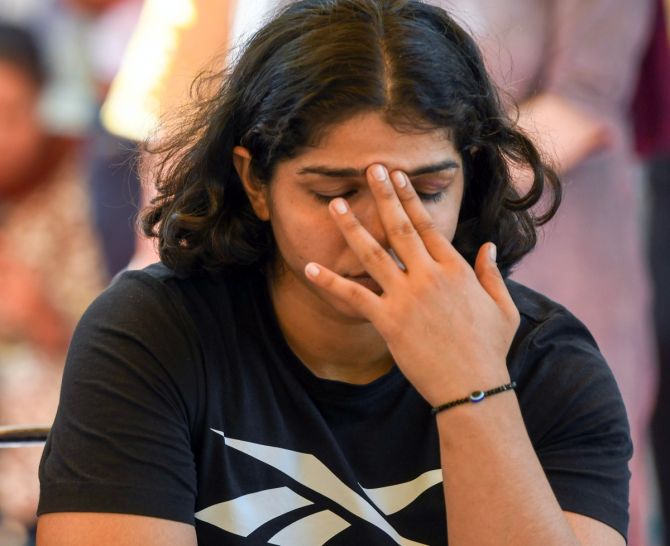
As the Delhi police wrestle with the problem of pinning down Brij Bhushan Sharan Singh, the embedded patriarchal structure of Indian society remains on open display.
The current controversy emphasises that innate chauvinism acquires a toxic edge when it fuses with power, as the Kaiserganj MP's public defiance shows.
Strikingly, this applies not just to the realm of politics, but the corporate world too where men dominate the fortunes of women.
By now, the sheer tenacity of the women wrestlers' protest has attracted sympathy from many quarters, including, touchingly, the cricket World Cup winning team of 1983.
Only BCCI President Roger Binny, a member of that team, chickened out for reasons that are understandable if wholly dishonourable.
Mr Binny may be apolitical, but he operates in an environment that demonstrates like nothing else the nexus between patriarchy, political power and sporting administration in India.
The powerful secretary of the organisation he heads is the son of the home minister. Nor is Mr Binny an outlier in this specific context.
Note that no head of any of India's sporting federation has chosen to lend its support to the wrestlers, not even, say, a body as obscure as the Indian Kayaking and Canoeing Association (yes, we have one, headquartered, bizarrely, in Delhi which is hardly known for usable water bodies).
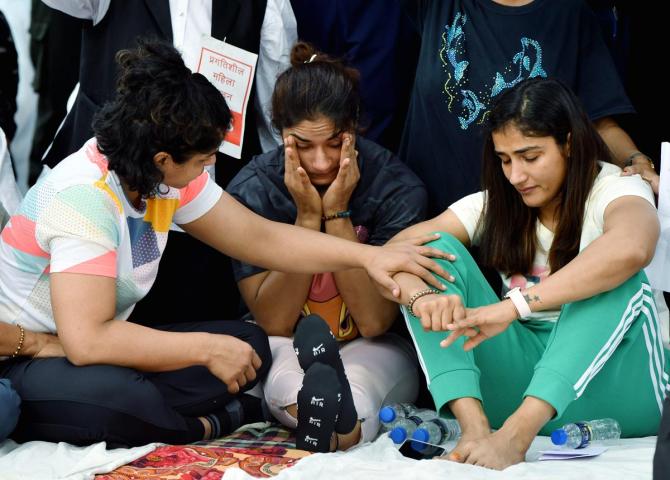
For a compelling example of patriarchy and the political patronage that undergirds it, look no further than India's sport federations.
The fact that Asian Games medallist P T Usha attracted considerable attention when she was appointed head of the Indian Olympic Association tells you as much.
She is one of only two women to head a significant Indian sporting federation.
For the other you need to go to the Table Tennis Federation of India, where Meghna Ahlawat was elected as the first woman president in December 2022.
But this designation comes with a caveat. Unlike Ms Usha, Ms Ahlawat is not renowned for sporting prowess or, indeed, specialised knowledge of sports administration.
Instead, most news reports introduced her as the wife of Haryana Deputy Chief Minister Dushyant Chautala, himself the former TTFI president until the board was suspended by a Delhi high court order following allegations of match fixing by a national player.
There is no rule that says sportspeople automatically make good sports administrators. But that logic holds just as much for Indian politicians.
Male politicos of various parties, for instance, have had serial control of the All India Football Federation. Yet the men's team ranks at 103.
In other sports in which India excels, from badminton to wrestling, boxing and hockey, it is fair to say that private investment has had a larger role to play than political intervention.
Himanta Biswa Sarma must surely have too much on his plate as chief minister of Assam and especially now as head of the North East Democratic Alliance with Manipur up in flames.
Yet he's been heading the Badminton Federation since 2017, and even found time to head up the Assam Cricket Association.
All these male politicians, mostly from the ruling party or allied parties, enjoy access to taxpayer-funded benefits such as travel to overseas events and other perks.
They are unlikely to risk their sinecures to speak up in support of a bunch of women wrestlers who have chosen to challenge a politician who appears to have the ruling regime in a stranglehold.
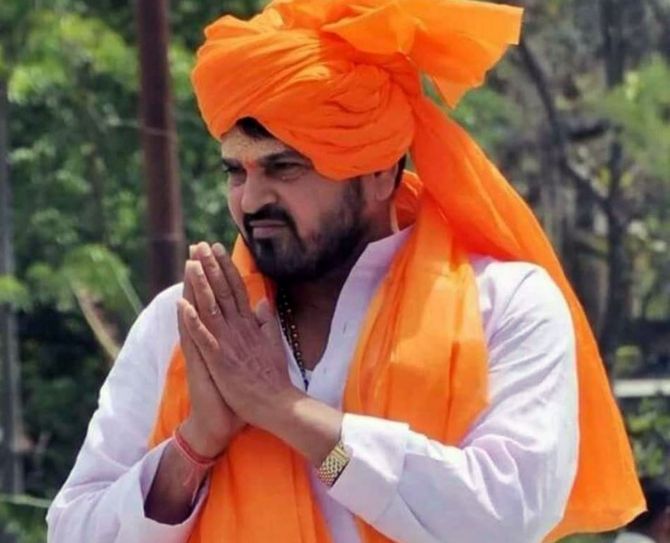
So would you assume that non-politician heading sporting bodies would step into the breach? At least one of them, you would have thought, wouldn't be so dependent on such perks, given that he's a well-heeled businessman in his own right.
That's Ajay Singh, chairman of SpiceJet, who heads the boxing federation, which oversees a sport in which Indian women have excelled in international forums.
Which brings us to India Inc, that doughty old boys' club. The similarity with Indian sporting federations is striking: Women are conspicuous by their scarcity in the upper echelons of management.
None of the top 10 corporations of 2023 (by profit) is headed by a woman or ever was, with the exception of State Bank of India and Coal India.
That would apply to the top 10 companies by market capitalisation too.
Despite such male-oriented dominance of the Indian corporate scene, most of these companies cannot be considered consequential when measured by the global scheme of things.
Yet many marque male CEOs of India Inc regularly inflict their commentary on the Twitterverse about India's greatness, real or imagined.
Mysteriously, they have no comment on this blatant intimidation of women who have truly made India great at various times.
Disclaimer: These are Kanika Datta's personal views.
Feature Presentation: Rajesh Alva/Rediff.com










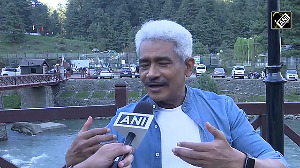

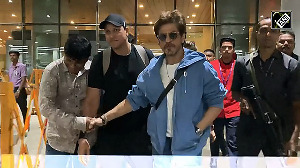
 © 2025
© 2025